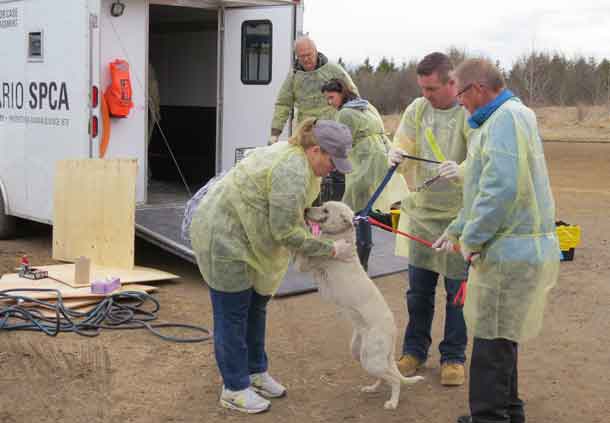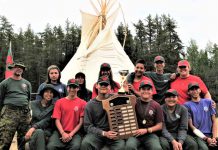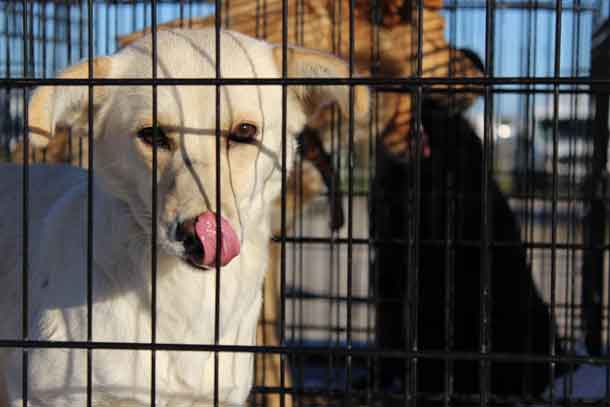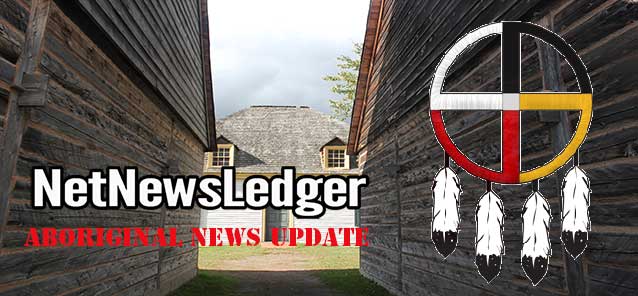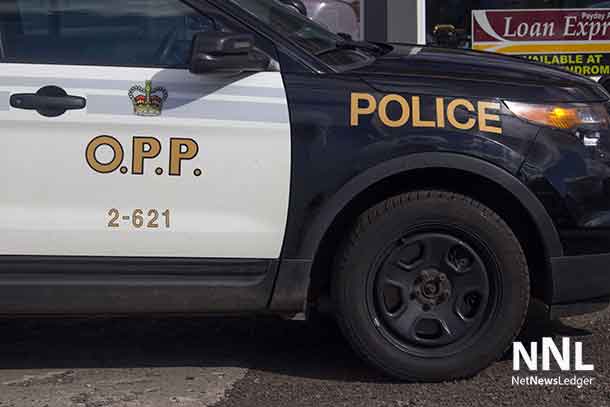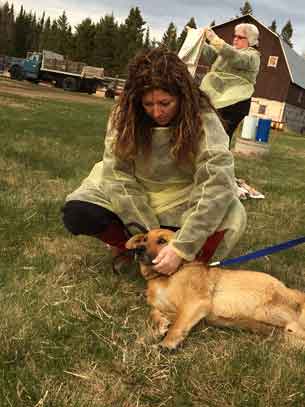 THUNDER BAY – On the Victoria Day Long Weekend, over 40 dogs and puppies arrived in Thunder Bay, on a unique journey to Southern Ontario. With the help of Northern Legacy Horse Farm, the canines are travelling from community partner, Wabaseemoong Independent Nation to Sudbury. When the dogs arrived in Thunder Bay, several local volunteers walked, cleaned, fed and prepared them for the next leg of their journey south.
THUNDER BAY – On the Victoria Day Long Weekend, over 40 dogs and puppies arrived in Thunder Bay, on a unique journey to Southern Ontario. With the help of Northern Legacy Horse Farm, the canines are travelling from community partner, Wabaseemoong Independent Nation to Sudbury. When the dogs arrived in Thunder Bay, several local volunteers walked, cleaned, fed and prepared them for the next leg of their journey south.
“All of the volunteers are happy to be onsite today to make this project a reality and work with Wabaseemoong Indpendent Nation and Mishkeegogamang First Nation to find these dogs new homes. It’s heartwarming to see the communities and partners working together to help these animals on a safe journey. This is a large-scale transfer and couldn’t be done without all of the participating partners,” says Judy Decicco, Chair, Northern Animal Services Committee, Ontario SPCA. “We are all truly thankful for the efforts of all of the volunteers and everyone who contributes to the initiative.”
Tomorrow the team will travel to Mishkeegogamang First Nation, another community partner, and will pick up close to 30 or more dogs and puppies. The dogs will then head towards Sudbury and Newmarket where they will be placed up for adoption with the help of the Ontario SPCA and the Welland & District SPCA.
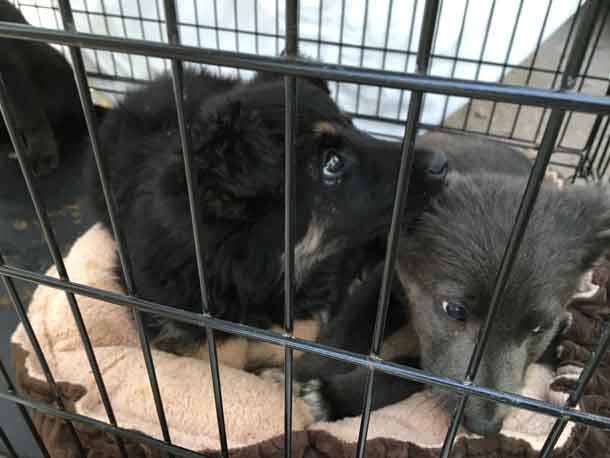 The volunteers from Thunder Bay are a part of a much larger collaboration that forms the Provincial Animal Transfer Program. Partners include Chief, Band Councils and Elders from Wabaseemoong Independent Nation and Mishkeegogamang First Nation, the Ontario Society for the Prevention of Cruelty to Animals, Beat the Heat Kenora, Northern Spay/Neuter Program, Grey Bruce Aboriginal Qimmiq Team, Dr. R. Bushuk of the Kenora Veterinary clinic, Northern Legacy Horse Farm, Welland & District SPCA and PetSmart Charities of Canada.
The volunteers from Thunder Bay are a part of a much larger collaboration that forms the Provincial Animal Transfer Program. Partners include Chief, Band Councils and Elders from Wabaseemoong Independent Nation and Mishkeegogamang First Nation, the Ontario Society for the Prevention of Cruelty to Animals, Beat the Heat Kenora, Northern Spay/Neuter Program, Grey Bruce Aboriginal Qimmiq Team, Dr. R. Bushuk of the Kenora Veterinary clinic, Northern Legacy Horse Farm, Welland & District SPCA and PetSmart Charities of Canada.
Some members of the collaboration worked on a similar project together back in 2015. That particular transfer saw 75 dogs be relocated from Whitefish First Nation, which resulted in a 100 per cent adoption rate, with all of the animals finding a home.
“It’s incredible to see everyone come together to work for the good of our communities. When asked why we do this, the answer is simple- it’s for the animals. Both communities were so wonderful to work with; we worked side by side. The communities are true leaders in animal welfare,” says Judi Cannon, Associate Director of the Indigenous Programs and Community Outreach, Ontario SPCA.
Prior to the transfer, wellness clinics and neuter programs were also held in both of the remote First Nation communities. Over 50 volunteers assisted in this transfer.


